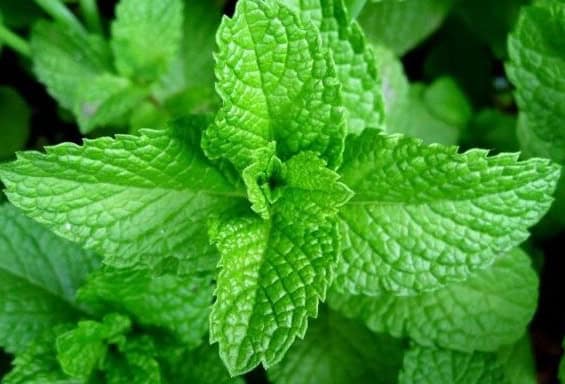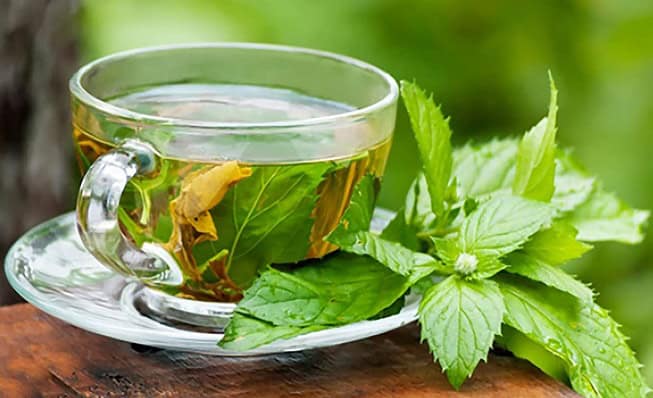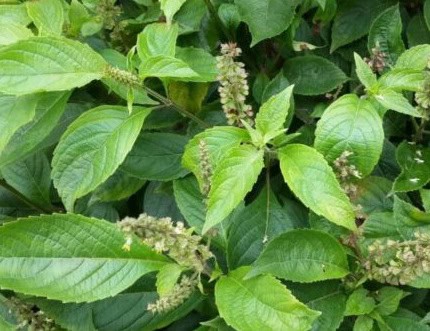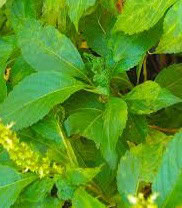
People have employed medicinal plants in alternative and traditional medicine since the dawn of time to treat, control, or inhibit a wide range of ailments. In this article, we explore scent leaf benefits and side effects you may not know.

Scent leaf, scientifically known as Ocimum gratissimum, is a species of plant that is widely grown in West Africa, usually within or near community homes and vegetable gardens, for medicinal as well as culinary uses. Scent leaf belongs to the Lamiaceae family and to the group of plants called spices and can also be found in other parts of the world, such as South America, North America, and Asia.
Scent leaves are commonly used to flavour soup, stew and season meat. In many regions of Nigeria and other parts of the world, the leaves are extensively utilized as a crucial ingredient in soups, particularly pepper soup and other meals of a similar nature.
Similar to other medicinal plants, the scent leaf possesses bioactive compounds that may help treat and prevent chronic and life-threatening conditions like diabetes, cancer, stroke, and arthritis. A number of ailments, like pain, fever, inflammation, anaemia, diarrhoea, and bacterial and fungal infections, are also treated with scent leaves.
Traditional medicine is aware of scent leaf benefits and side effects and has also employed scent leaf extracts to treat conditions like fever, coughing, and bodily aches. These benefits of scent leaves are attributed to flavonoids, the largest class of naturally occurring phenolic compounds. Many of the medicinal effects of scent leaf are linked to the high levels of phenolic compounds, such as:
Additionally, scent leaf benefits and side effects are the result of terpenes, flavonoids, tannins, alkaloids, steroids, proteins, carbohydrates, lipids, and oils that are all present in the scent leaf’s fresh and dried leaves, with the dried leave having higher quantities of these compounds.

Scent leaf contains a number of distinct phytochemical substances, each with a specific concentration and a host of benefits. Let’s explore the numerous medical benefits associated with scent leaves.
Eating the stem of the scent leaf helps keep teeth strong and eliminate bad breath because it contains oral bacteria that fight tooth decay. The biological activities of flavonoids, like rutin found in scent leaves, have been identified to inhibit microbiological growth in the body as well as in the mouth.
One of scent leaves’ many health benefits is that it can help blood sugar levels return to normal when consumed on a regular basis. It contains magnesium and calcium, which both help to reduce blood sugar. When you take scent leaves, the islets that produce insulin for the body are protected.
The antioxidant flavonoid quercetin, found in plants like scent leaves, improves vascular function and reduces the risk of cardiovascular disease when it is present in the blood. Scent leaf and its derivatives include quercetin, which prevents blood clotting and stroke risk.
Scent leaves have the potential to heal the body’s damage caused by nicotine and smoking. Furthermore, it helps the heart work properly by eliminating harmful substances and cholesterol that the body does not require.
Flavonoids and phenols have anti-inflammatory and anti-oxidative properties that are mediated by scavenging or quenching free radicals, chelating metal ions, or blocking enzyme systems that generate free radicals.
Scent leaf aids in the emptying of the stomach. It facilitates faster food digestion and has a calming effect on the stomach. Eating regular meals with scent leaves and other aromatic herbs will improve the nutritional value of the food while also enhancing its flavour and aromatherapy.
Scent leaf contains bioactive substances that have been demonstrated to have antiviral qualities, such as thymol, rosmarinic acid, and eugenol. These substances may aid in preventing the spread of some viruses, such as the influenza virus, the herpes simplex virus, and the human immunodeficiency virus (HIV).
Scent leaf has been employed, in addition to other substances, as a treatment for people who are HIV positive and suffering from AIDS. It was also reported in a study that scent leaves may strengthen the immune system and therefore, improve the body’s capacity to combat viral illnesses.

You can use scent leaves to treat vomiting, diarrhoea, dysentery, and stomach aches. The majority of individuals consider diarrhoea to be a brief, minor illness.
Actually, diarrheal diseases rank as the second most common cause of death for children under five, according to the World Health Organization. Even though it is sometimes ignored, using scent leaf extract is one of many therapies for diarrhoea.
Scent leaf contains an active ingredient known as eugenol, a chemical with antibacterial and antispasmodic properties. Eugenol can help eliminate the bacteria causing the diarrhoea and alleviate the pain and discomfort that are often associated with it.
Scent leaf extract possesses anti-inflammatory, analgesic, and anti-ulcer qualities, and that has made it a great plant to treat stomach ulcers. The particular phenolic chemicals carvacrol and eugenol found in scent leaf extract are thought to be the cause of the scent leaf extract’s antiulcer properties.
Additionally, studies have revealed that scent leaf extract suppresses the activity of cyclooxygenase-2 (COX-2), an enzyme essential in the emergence of ulcers. The carvacrol and eugenol substances found in scent leaf cooperate to shield the stomach mucosa from harm and hasten the healing of pre-existing ulcers.
The scent leaf benefits extend to restoring glowing skin. Scent leaf has a high concentration of vitamins, including ascorbic acid and alpha-tocopherol, which is directly linked to its antioxidant capacity. Previous research has shown that flavonoids and phenols protect cells from oxidative stress-induced cellular damage.
Scent leaf’s antiseptic, antifungal, and antibacterial properties make it a treatment for skin conditions. When crushed into a paste for skin care, it prevents skin problems like ringworm, eczema, and psoriasis.
The most effective application of quercetin, a naturally occurring flavonoid identified in plants (scent leaves), has been utilized in the treatment of colorectal cancer. Numerous distinct mechanisms, such as cell cycle arrest, an increase in apoptosis, antioxidant replication, modulation of estrogen receptors, regulation of signalling pathways, inhibition of metastasis, and angiogenesis, contribute to quercetin’s chemo-preventive effects in colorectal cancer. Additionally, quercetin lowers the risk of lung cancer.
It has been indicated that the anticancer action of flavonoids stems from their suppression of protein kinases, which regulate cellular processes. One effective anticancer medication is quercetin, a flavonoid that inhibits the activity of the protein disulfide isomerase.

The fact that some leaves are beneficial does not mean that they do not have side effects. It is also untrue to claim that plant-based natural supplements are risk-free and without side effects until their properties are thoroughly investigated and assessed.
Here are the detailed side effects of the scent leaf:
Scent leaf may possess an antifertility effect when consumed in excess. There are some compounds in scent leaves that might have the potential to disrupt your body’s natural balance of estrogen and progesterone. These two important hormones are involved in menstrual cycle regulation and fertility.
Additionally, scent leaves may interfere with sperm activity, making it more difficult for them to fertilize an egg. It might be a safe and effective natural solution for those trying to lower their fertility. Nevertheless, do not rely on scent leaves as your main contraception method.
Scent leaf benefits and side effects incorporate the probability of scent leaf becoming poisonous if not used properly. If you notice hives, edemas, or difficulty in breathing when consuming scent leaf, talk to a doctor to evaluate if you might be allergic to it.
Scent leaf is also high in vitamin K, which is necessary for blood clotting. Warfarin and other blood thinners may not function as intended when there is an abundance of vitamin K present in the diet or supplements. Therefore, anyone using blood thinners should speak with a physician before increasing their usage of scent leaves.
Scent leaf may have the side effect of inducing labour in pregnant women when consumed in high dosages. It is therefore advised that expectant mothers refrain from taking large doses of scent leaf in order to avoid early labour, even if it is safe for them to consume.
In many different parts of the world, 80% of people use herbal medicine and home remedies to cure a range of ailments. However, there is still a need to seek medical guidance, especially if you are on blood-thinning drugs, pregnant, or trying to conceive.
KompleteCare offers you a medium to connect to medical professionals, from the comfort of your environment irrespective of your location. Telemedicine uses telecommunication modalities to aid links between an individual and a healthcare professional. Through telemedicine, healthcare professionals can recommend treatments, the prescription of medications, and lifestyle modification advice.
Click on this link to speak with a healthcare professional.
It is important to know what scent leaf’s benefits and side effects are for better optimization of intake. Scent leaf, scientifically known as Ocimum gratissimum, is a species of plant that is widely grown in West Africa, and it contains a number of distinct phytochemical substances. Scent leaf possesses bioactive compounds that may help treat and prevent chronic and life-threatening conditions like diabetes, cancer, stroke, and arthritis, as well as a number of ailments like pain, fever, inflammation, anaemia, diarrhoea, and bacterial and fungal infections.
Scent leaf possesses natural substances such as carvacrol and eugenol that are believed to have anti-inflammatory and antioxidant qualities. These carvacrol and eugenol substances found in scent life cooperate to shield the stomach mucosa from harm and hasten the healing of pre-existing ulcers.
The richness of vitamins and antioxidants in the scent leaf contributes to the prevention of diseases. Scent leaf essential oil is incredibly high in phytochemicals that guard against microbial infections, skin disorders, colds, and bad breath. Scent leaf benefits and side effects are what anyone should endeavour to take cognizance of; however, if you are on blood thinners or are pregnant, it is recommended to avoid drinking a lot of fresh scent leaf extracts to avoid any form of toxicity.
Scent leaf has Ocimum gratissimum as its botanical or scientific name; however, it has other names that a variety of people identify with in different regions of the world. Other names for scent leaves are:
There is evidence of scent leaf benefits and side effects. Here are some incredible medicinal uses of scent leaves that you should be aware of:
Scent leaf extracts contain some bioactive compounds that have an antibacterial function against Salmonella typhi, Pseudomonas aeruginosa, Staphylococcus aureus, and Escherichia coli.
Understanding scent leaf’s benefits and side effects may nudge you towards juicing it, which is okay. To make scent leaf juice, add the scent leaf, ginger, and garlic to the blender and blend the three ingredients. Sieve the blended mixture and enjoy it however you wish. You should store the remnants in a freezer to preserve the benefits of the scent leaf juice.
Scent leaf is enriched with numerous health benefits, like vitamin A, which is abundant in scent leaf and supports healthy vision. The minerals calcium and magnesium found in scent leaves can lower bad cholesterol and improve blood flow.
In the exploration of scent leaf benefits and side effects, it was found that it is a medicinal plant that can be eaten raw. The low level of phytates, oxalates, tannins, and saponins in the scent leaf makes the leaves safe for consumption and hardly causes any serious hazards even when consumed in large quantities, which is a unique quality of the plant.
Scent leaf contains SPF 50, hyaluronic acid, and Centella Asiatica extract as active ingredients; it is a superb all-in-one daily moisturizer and sunscreen. Even if you have sensitive skin, you should feel secure using a scent leaf every day.
8. How do you use scent leaf seeds?
Scent leaf seeds are little or small in size, therefore, it is better to plant them directly on top of damp loamy soil without covering them. The soil has to be moist or wet until the seeds germinate. In cognisance of scent leaf benefits and side effects, the plant scent leaf seeds can be planted outside in the sweltering summer months. You may plant scent leaf seeds in full sun throughout the sweltering summer months.
Reference
Adeyemi. R. O. (2023). 20 health benefits of scent leaves you should know.
Bimkaf palace. (2022). Scent leaf is good for the eye.
Kalu, E. (2022). Family planning and birth control options for women.
Lolo Kings Tv. (2024). How I prepared scent leaf juice with ginger and garlic.
Obasi. N. B. (2020). Effect of scent leaf-extract (Ocimum gratissimum) and neem leaf-extract (Azadirachta Indica) fed as antimicrobial feed additive on fishing broilers.
Olatunde, A. (2022). Eight health benefits of scent leaf you should know.
Olufunke. (2020). The medicinal values of scent leaf (Ocimum gratissimum).
Yaje, L. (2022). My first time growing scent leaf.
NutritionSeptember 19, 2024
NutritionOctober 31, 2024
healthcareFebruary 27, 2025
healthcareAugust 20, 2025








